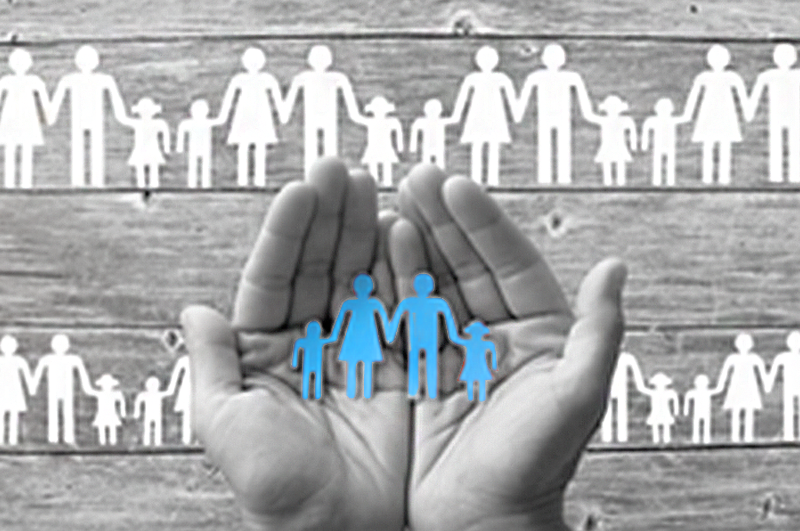When Should I Get Life Insurance?

The insurance industry is based on the almighty “What If” scenario. We never know when something terrible is going to happen to our family, home, business, car, etc. – but if you are forward-thinking, you know it is imperative to insure the prized possessions in your life. One of the most valuable and overlooked commodities in your life is your own as we never know when our time is up or if today will be our last day. But what we do know is that if we have a family or a close friend we’d like to take care of God forbid something happens, Life Insurance steps in and lessens the impact of the overall loss.
The best time to get Life Insurance is during something we in the industry like to call a “triggering life event” like a purchase of a new home, marriage, divorce, (starting a family) a baby on the way, the purchase of a business and also, the unfortunate circumstance of a family member or friend passing away.
In 2019, NBA Legend, Kobe Bryant, passed away in a tragic helicopter crash that killed his young daughter and everyone else on the flight. It shocked the world to the core. Application requests jumped by 50% on the Tuesday after Bryant’s death, 52% on Wednesday, and 55% on Thursday, while the volume of submitted applications increased by 58% on Sunday, Jan. 26 — the same day as the crash — and 61% on Monday. The spike subsided to normal levels within a week. When a tumultuous loss like Kobe Bryant happens, it puts life into perspective that many people seem to forget until a triggering event like this happens. It moves to the forefront, making people more prone to research life insurance, if they didn’t already have a policy in place. They insert themselves in the position of the person who passed away and it seems to hit home as quickly as when they received the news.
When should I think about purchasing life insurance?
At a young age, you may not think you need life insurance but it is far better to get a policy in your 20s than it is to get in your 30s and 40s. In your 20s, the life insurance company views you as a much lower risk and liability to their company as you are a rather younger, healthier and active person. The older you get, unfortunately, the more expensive the life insurance policy will be because you are older. Actuaries are the ones responsible for supplying the life insurance companies with an average age/life expectancy for males and females – so depending on how soon you can apply for life insurance coverage, the better!
In today’s day and age, when a couple purchases a new home, most take out a mortgage on the home; a sizable one at that, considering both incomes from both parties. In the event, something happens to either one, a life insurance policy will not only help pay off the mortgage, but in most cases, allow the home expenses to carry on without any interruptions. Most couples, if one of them were to pass away, the other would need to sell the home since the costs would exceed the income coming into the household, but in the best case scenario, having the life insurance death benefit paid directly to the beneficiary would give the widow/remaining household member time to sell the home without worrying about the mounting bills.
Downfalls to waiting too long to purchase life insurance?
The main downfall for waiting too long to purchase a life insurance policy is an obvious one: it will be MORE EXPENSIVE! The longer you wait, the more expensive it will be – for certain – but in most cases, life insurance carriers have an age cut off that they will issue a policy to an individual. Now, of course Life Insurance Agents understand that the higher death benefit policies will be more expensive on a monthly/annual rate, so some life insurance policies might actually have to wait until one is a little older and more established in their career to be able to afford it.
Also, by waiting too long, you run the risk of deteriorating health in the coming years to where you may not be able to get a life insurance policy whatsoever.
The younger you are, the less health ailments you will theoretically have which equates to a cheaper monthly premium.
The more risk you carry in the eyes of the insurance company would cause the insurance premiums in which you’d pay, to be ultimately higher.
What are my options for Life Insurance?
When it comes to plan options, there are a BUNCH!
You have a variation of Term Life Insurance options and Whole Life Insurance options, too!
Term Life Insurance options are cheaper – as you are paying a set premium, locked-in, for the duration of the “term” of years that you bought. Once the policy reaches it’s set amount of years, that is it. No return of premium, no cash value, no savings account.
Whole Life Insurance options are a little more costly, as the insurance lasts for ones whole life, so there is a guarantee that in the event of death, any beneficiary listed to the policy will receive a death benefit payout in the amount of the policy applied for.
On almost all whole life insurance policies have the component of when an individual is paying the life insurance premiums, after a set time, the premium payments start building up in the policy’s Cash Value section of the plan and essentially could be used as a savings account for unexpected expenses down the road, not JUST for death.
If you are looking for more information and want to see what your options look like, please reach out to Jamie Nielsen or Mark Fontanella at Hanson & Ryan, Inc. today!



